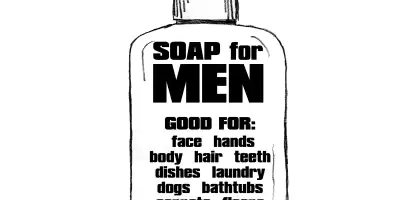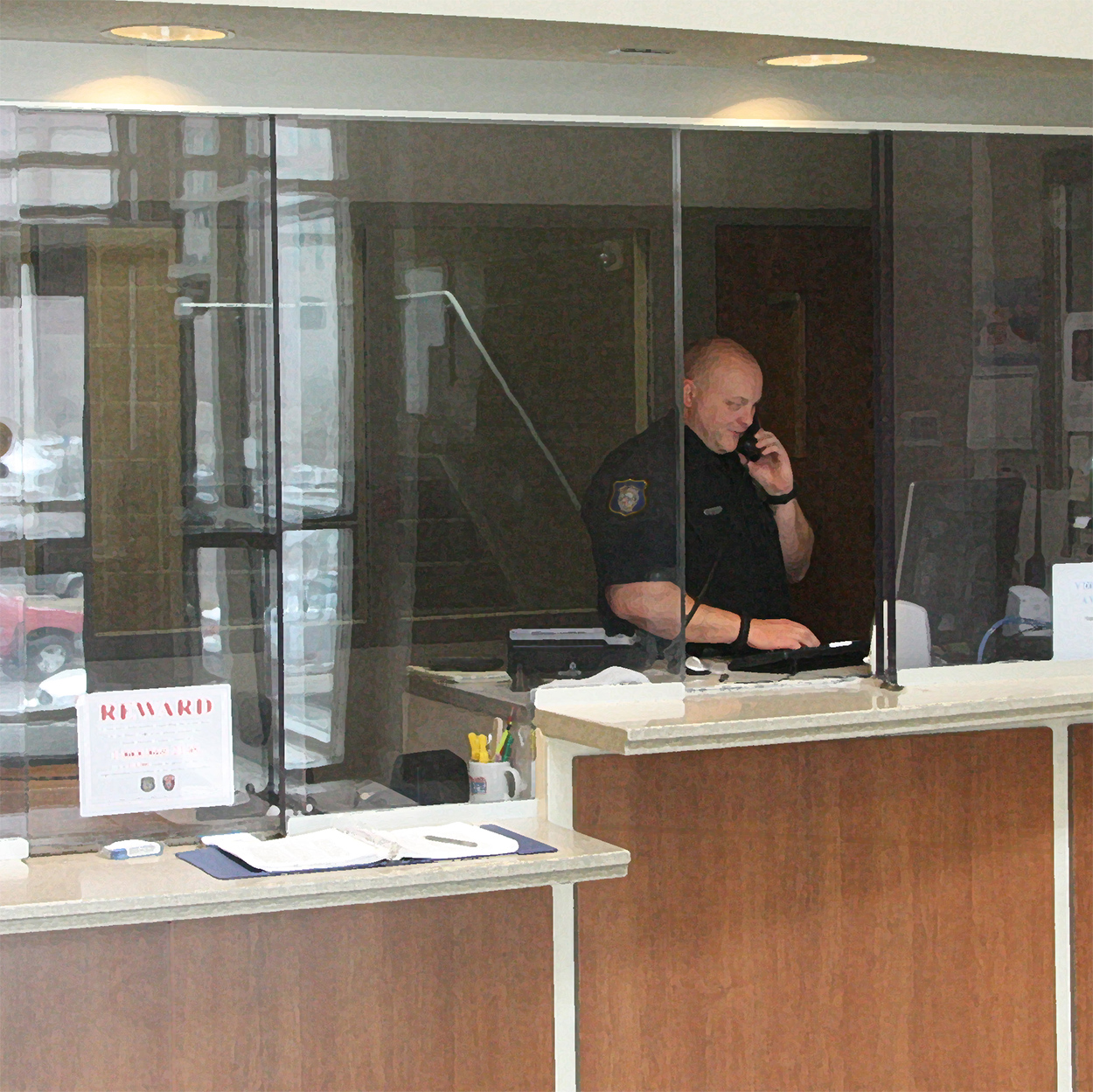As a social experiment, I recently asked three of my college students—bright, savvy, and informed—if they were anti-racist. Here is what they said:
- “Um. Yes? I think?”
- “What do you mean when you say that?”
- “(Hesitatingly and slowly rising in pitch) Yeeeesssss??”
Their hesitation really made me think.
In contrast, they did not hesitate when I asked about President Russel M. Nelson’s call to “lead out in abandoning attitudes and actions of prejudice.” While some may want to protect their own sins or defend their biases, I feel totally comfortable vouching for these students. They’re serious and committed to answering the prophet’s call.
Despite this, each hesitated when invited to identify with “anti-racism.” So, I then asked, “why?”
- “I’ve never been to a protest, but I want to end racism. Do I count?”
- “It depends on what you mean. I want to see an end to racism, but isn’t ‘anti-racism’ more of a political thing?”
- “I hold anti-racist views, but I’m uncomfortable aligning with a group whose loudest voices I don’t agree with in important areas.”
We discussed further. I asked probingly, “So what you’re saying is ‘I’m anti-racist, I’m just not on the political left?’”
They nodded.
My students despise racism. They harbor concerns about the anti-racism on offer: the anti-racism of the political left, of political activism, and of the culture wars—and they’re not alone. My fear is that we’re passing up the opportunity to bring more people into the cause of anti-racism because of its political associations. Is there a way to help those who feel this way to parse out the political tribe from the deeper moral position—a moral position they clearly hold? Is there a way to better welcome all to the “against-racism” team?
Progress and Hesitance
In the wake of President Russell Nelson’s call to action, my wife heard of a Latter-day Saint stake that got really serious about anti-racism with multiple events, training, and talks on the topic. President Nelson’s call was answered in this area by earnest and sincere attempts to live up to the very best of what the gospel teaches about respect for all the human family. These good people are heeding the prophet’s call in every way they know how.
It’s important to celebrate progress like this. It’s also important to admit that we’ve got work to do. As an educator and a Latter-day Saint, I was disheartened to see the struggles of Davis County schools in Utah with racism. We must be clear-eyed about the work we still have to do. It costs me nothing to say that I want to see racism end in my community. To the contrary, I feel spurred by my faith to do what I can to end it.
That brings me back to my students’ hesitance—and the possibility that the association of anti-racism and left-wing politics is keeping some from more fearlessly opposing racism.
I really can’t blame them—I have my own deep, substantive concerns about contemporary anti-racism. Those differences are real and serious. And yet, focusing on the disagreements is counterproductive—it distracts from getting to the real work at hand, especially compared to a proposal that feels so hopeful: finding a place where people of different political stripes can come together and agree that racism has no place among us. To that end, I’d like to try—however imperfectly—to highlight some areas of potential common cause. I speak as a Latter-day Saint, but I’d invite any of goodwill to join this cause and conversation.
Latter-day Obligations
While the political association with progressive anti-racism is one about which good people can have differing opinions, the moral virtue of anti-racism seems to me to be a non-negotiable for disciples. Let me say that more directly: I think you can be a good follower of Jesus from all over the political spectrum. I don’t think you can be a good Christian and ignore the moral necessity to work against racism. This is doubly true for Latter-day Saints, as we have obligations to follow our prophet’s call on the matter.
But how can we unite on this matter when—like so many other things—culture war politics appears to be getting in the way? Maybe by building an anti-racism that transcends politics. My purpose in this essay is to weave together threads from classical liberalism and restorationist theology, and explore a little more the contours of a different kind of anti-racism.
That’s a daunting task, even for an expert—and I’m no such thing. I’m a middle-class white guy from Utah—without academic expertise in political theory, and even less in sociology or political activism. It’s okay if you’re skeptical. My only real credential as a lay person is that I’m sincere and trying in earnest. Fortunately, it strikes me that more “normal folks” trying is exactly what is needed right now. From my admittedly limited perspective, I feel morally bound to do certain things, and I wonder whether they represent a common ground many more could appreciate:
- I feel an obligation to teach my children to value all others as children of God.
- I take seriously the charge to end racist attitudes and prejudiced thinking. This includes, at a minimum, racist comments, jokes, and stereotypes—but extends to outdated thinking and ignorance.
- In the context of church classes, university classes, and family discussion, I feel an obligation to direct such events within my jurisdiction with care so that racist language is not used—and if it is, to immediately and forthrightly address it.
- I believe there is a moral necessity to stand against oppression and racism, both as a moral matter and as a matter of following the prophet. And I feel that no amount of progress is justification for complacency—that Zion, as defined in scripture, will have no poverty—and no racism—among them.
- I do my best to be aware of racism and default away from denial. As such, I consider the effects of historic racism—and how it reverberates today—as a call to action, not a threat.
Clearly, there are other general principles like this we might consider—and many other smaller practical steps that could follow from all of them. A friend of mine has started quietly, sincerely celebrating Juneteenth. He says “can you think of anything more American than celebrating the end of slavery?” A different friend has begun to talk about black believers in history—Jane Manning James, Green Flake, and Elijah Abel particularly—in discussions of church history. Another person I know has begun to teach their children explicitly about race in a thoughtful and deliberate way.
Some inspirations
I suspect an appreciation of other rich forms of anti-racism could do a lot of good. I’m not picking a fight with my progressive anti-racist friends. I’m suggesting that a new, potentially broader anti-racism could help them achieve a noble, worthy, and shared goal.
I’m not the first to raise such a possibility, of course. Chloé Valdary’s work on what she calls the “Theory of Enchantment” is an intriguing alternative to the prevailing models; her writing and thinking are about making anti-racism compassionate and effective. In a similar vein, the new Foundation Against Intolerance and Racism (FAIR) is gathering together an impressive array of people and resources aimed at “advancing civil rights and liberties for all Americans, and promoting a common culture based on fairness, understanding, and humanity.” Most people are already deeply opposed to racism and we should trumpet that success.
Another: several months ago, Public Square Magazine published a pair of articles titled “Honest Questions About Race From Fellow Disciples” (focused on concerns about contemporary anti-racism) and “Yes, We Really Need to Talk About Race” (which focused on the urgency of working to end racism).
Perhaps most importantly, during Black History Month, I’ve made some quiet, private commitments to listen more carefully, read more widely, and focus on practical steps. I’m not big on invoking civil rights heroes—it can be so easy to lapse into performativity. And at the same time, I can’t seriously claim to be listing my inspirations without including Civil Rights heroes like Dr. King, John Lewis, and Elijah Cummings.
A Classically Liberal Anti-Racism
Now let me be clear: I do not speak for anyone but me. But as I read and consider, I am recognizing the contours of an anti-racism that resonates deeply with me, but which differs in meaningful ways from contemporary efforts.
Politically, I’m an old-style liberal: enlightenment, rationality, the inherent worth of the individual—those kinds of things are really my jam—I’m a little less Marx, and a little more Hume, Smith, and Locke. I’m also inspired by restorationist teachings of personal agency and personal accountability, and have a strong tilt toward metrics, pragmatism, and getting it done. And all that seems to be reflected in this alternative—one that resonates with American liberal values, and may well eliminate some of the residual hesitance out there.
What I’m attempting to describe is an anti-racism that aligns naturally with the worldview and values of many Judeo-Christian believers. I want an anti-racism that transcends politics, and in fact one that becomes a part of our national “civic religion.” I want a patriotic, easy, even palatable anti-racism—because I want as many to come on board as possible.
Imagine with me:
- I have noticed—as you may have—that progressive anti-racism often seems more concerned with keeping some out than it does welcoming all in. This new anti-racism would define itself by how warmly it welcomes the new recruits, not how stringently it keeps the novice out. Only read one book? Welcome! Love quoting the very-well known MLK quotes especially? I used to too, not a problem! Are you a fiery conservative who is a little nervous to be seen in a group of anti-racists?—that’s perfect, we need more people just like you! In the camp of liberal anti-racism, we are excited (not irritated) by new proselytes.
- To the degree that contemporary anti-racism is a political vehicle of the progressive left, this new anti-racism must deliberately aim to be apolitical. Too often, it feels that the goal of contemporary anti-racism is to advance progressive politics; by contrast, the goal of liberal anti-racism is to have Trump supporters and communists arm-in-arm, agreeing that while the other is wrong about so much, at least we can agree on the important things.
- Liberal anti-racism feels no threat when anti-racism conflicts with progressive political priorities precisely because it is not a progressive enterprise. Liberal anti-racism particularly does not fear raising issues like family structure, school choice, public sector union reform, or welfare reform, because the question is one of effectiveness, not one of ideological purity or vote-whipping. While many opinions will be tolerated, the driving question will not be what sounds anti-racist, but rather what pragmatically achieves anti-racism most effectively; as just one example, increased (and targeted) policing will be viewed as another policy option, not a de facto sign of implicit goodness or badness. Parenthetically, this kind of discussion, it seems to me, is sorely needed.
- Liberal anti-racism is open to good policy ideas, let them come from whence they may. When the issue of strong families is raised, for example, the liberal anti-racist will be careful to ensure that no one blames the victim—but will have equally little patience for anyone who would hide the ball on the very clear social science findings (wherein family structure clearly shows immense promise as a means to reduce poverty) in order to impress the cool left-leaning kids. Similarly, the issue of school choice can easily be raised in the liberal camp with no fear of offending left-leaning types, precisely because liberal anti-racism isn’t about maintaining political alliances with the labor left.
- Liberal anti-racism believes that the best way to teach history well is to teach history well. Twisting the teaching of history into either jingoistic patriotism or progressive activism are both injustices—and most culture wars are wastes of time.
- Whereas anti-racism can often be a graceless enterprise—unforgiving of those who have made mistakes—liberal anti-racism sees the need for grace, and views even the “vilest of sinners” as potential converts; and while the path to grace cannot be an easy or cheap one, insists that there must in fact be a path. In point of fact, it is precisely the ones struggling with racism the most that we want to engage with most!
- In contrast to contemporary anti-racism’s thin-skinned allergy-to-criticism, liberal anti-racism takes critique with a smile and a thank you. Liberalism is the spirit of earnest debate, rich discussion, and harsh feedback—and that applies here. We are trained from a young age to spot mistakes more readily than we spot gems of truth. We’re also trained to argue, debate, and use deliberation as a tool for mentally processing difficult concepts. These things are normal and natural and should be encouraged—or at least not discouraged. Annoying sometimes? Sure. But hardly evil—and certainly not racist. People will argue about these things, and there’s nothing wrong with that—so long as it progresses past the argument and gets to application!
- Whereas anti-racism can be joyless, (and even, if I’m honest, occasionally condescending or indignant) anti-racism is happy to be happy: cheerful, optimistic, and fighting the good fight with a smile.
- This anti-racism would derive its happiness in part from taking seriously the progress that has already been reached; whereas contemporary anti-racism cannot speak of such things for fear of being labeled complacent, liberal anti-racism views progress as fuel for future successes. We appreciate that most people are already deeply opposed to racism and we should trumpet that success—and use it as the starting point for future gains.
- The new, liberal anti-racism would replace style with substance. Shunning performativity, liberal anti-racism concerns itself with clear metrics for improvement. To the liberal anti-racist, the answer to posturing is practicality. Rather than condemning the work of the virtue signalers, liberal anti-racism simply asks them to put their money where their mouth is—to get down to brass tacks, and in a hurry: What are your goals? What are your metrics? Are your methods working? How can we make progress?
- Liberal anti-racism is highly prioritized. A friend of mine recently apologized profusely for an awkward-but-innocent faux pas associated with race. The apology was good—but it was clear to me that anxiety like this is just silly. (One friend called this “racial hypochondria,” in which well-meaning white people worry more about innocently saying the wrong thing than getting to work on the important things.) The solution is prioritization and a sense of proportion—if we’re serious about racism, we need to take questions seriously revolving around Chinese Uighurs and improving the lot of foreign immigrants to America’s shores—and weigh those against still-serious, but lower-priority actions. Perhaps taking cues from the burgeoning “effective altruism” movement, imagine what an “effective anti-racism” would look like, carefully tuned to what will make the biggest difference, not just the biggest media splash.
- Liberal anti-racism prioritizes ideas and individuals above group identity, and abhors purity tests; no more “you haven’t read enough” (or you would agree with me) and no more “you don’t listen to enough black people” (who happen to share all my political views). If you’re here, that’s enough—and we’ll do what we can with you while we have you. (By the way, reading more from black authors is highly recommended—particularly during Black History Month. My concern is not about reading, or encouraging to read; it is about gatekeeping out those who most need to be welcomed in).
- Liberal anti-racism feels an aversion to bemoaning just how awful we are (or America is, etc.). I don’t believe in original sin; it doesn’t align with my liberal values or my restorationist ones. I don’t believe in human depravity either, and certainly, not depravity that is inborn. I do not want people to become anti-racist because they are bad, but because they are good. On a practical level, the self-flagellation is a sack of sand and doesn’t exactly do wonders for morale. More fundamentally, liberal anti-racism is about action, not talk. If we aren’t doing enough, then we should admit as much with clear-eyed determination and grim urgency. It’s time to get to work—not talk about the urgency of it. Mistakes—which will come—should be admitted to directly, addressed deliberately, and then, and this is imperative, not wallowed in.
- Liberal anti-racism is committed to more than being the cynical naysayer—we are engaged in the far harder work of becoming the impossible-to-satisfy but totally-committed citizen; not only to critique the status quo but to build a better world.
- Liberal anti-racism critiques America as a patriotic act, not as a subversive one. While contemporary anti-racism flirts with critique as a means to undermine institutions, liberalism obviates the discussion altogether: reform is the goal, not subversion. We want better institutions, not fewer. Liberal anti-racism holds suspect those who are merely interested in flipping the table and crying “revolution!” Liberals are fully bought-in when it comes to the values and promise of the grand institutions, and are wary of those who appear more interested in destabilizing than improving them.
Is my new anti-racism just a way for people like me to feel comfortable? I don’t think so. But if this list is good for no one other than me, it’s still worth it. If there’s even a chance though that we can end some of the hesitance on the part of our fellow disciples—so that they can be deliberate and courageous and say “yes, of course, I’m an anti-racist” with gusto—then wouldn’t that be worth it?
Allies in the Cause
There’s an old tradition among the Maori that I have always found moving. When meeting a band of foreigners, the Maori warriors perform a specific haka to tell if the visitors are friend or foe. The climax of the war dance comes when the warriors present a token—often a leaf—as a peace offering. If the visitors take the offering, it will mean peace. If they stand on the token, it means war. I do not want people to become anti-racist because they are bad, but because they are good.
For me, the answer is yes. For some, the answer will be no. I hope they’ll hit pause before writing this off. Some will see this as a threat; others will bristle at the criticism—or the competition. I fear that some are too committed to fighting to lay down their weapons. Others may similarly be unwilling to give up the rhetorical and political high ground—not realizing that they’re passing up the moral high ground.
Whatever this prompts in you, I hope you’ll consider thoughtfully and see that I’m in earnest.
An Aspiration Powerful Enough to Unite
To close, I return to the words of Rev. Amos Brown, a member of the NAACP National Board of Directors. In his Salt Lake Tribune letter, he speaks of a unique teaching of Joseph Smith that is close to my heart, too:
In April 1830, Joseph Smith began building “Zion.” Latter-day Saint scripture says this is a real place where people are “of one heart and one mind, and [dwell] in righteousness; and there [are] no poor among them.”
Because of the love of God in the hearts of the people, we know that Zion will be a place with no poor; they will lift each other until poverty is banished. It seems obvious to me, once again, that this will be a place devoid of racism, too, and that implies that our duty to build a just society and our duty to end racism are part of the same project.
No matter our political leanings, we are being called to build this “beautiful” or “beloved community” and this “holy city.” Perhaps it is time that we set down our arguments about how best to wield the shovels, and get to digging.

















